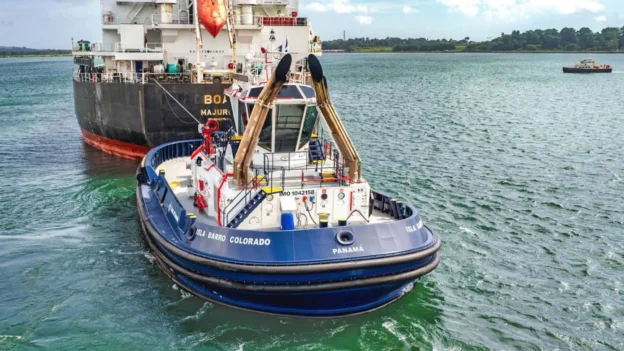As part of its commitment to sustainability, the Panama Canal Authority (ACP) has integrated the first hybrid tugboats, the Isla Barro Colorado and Isla Bastimentos, into its fleet. These modern tugboats are a technological upgrade, and a strategic investment that seeks to encourage cleaner and more efficient operations in the long term.
Integration of hybrid tugboats into the fleet
Hybrid tugs are equipped with diesel engines and electric propulsion systems. electric propulsion systemsThis allows them to operate more efficiently and with lower emissions. In certain maneuvers, they can run exclusively on batteries, which contributes to zero emissions in common activities. This technology is aligned with the Canal’s decarbonization goals, driven by the International Maritime Organization, which seeks to achieve carbon neutrality by 2050.
With an operating capacity of up to 700 hours per month, these hybrid vessels are an essential factor in maintaining the Canal’s competitivenessin world trade. In addition, these tugboats have the capacity to operate with greater autonomy and less need for maintenance, which in turn reduces operating costs and prolongs the useful life of the equipment.
The implementation of the hybrid tugs has a direct positive impact on the natural environment of the Canal. Through their quieter operation, these tugboats reduce underwater noise, which helps protect marine ecosystems vital to local biodiversity. In addition, reduced emissions contribute to improved air quality in communities near port facilities, creating a healthier environment for Panamanians.
The ACP plans to acquire a total of 10 hybrid tugboats, with the possibility of adding 10 more in the coming years. With the addition of each new vessel, the Panama Canal continues its modernization process, reaffirming its commitment to sustainability and environmental responsibility.
Source and photo: Panama Canal

